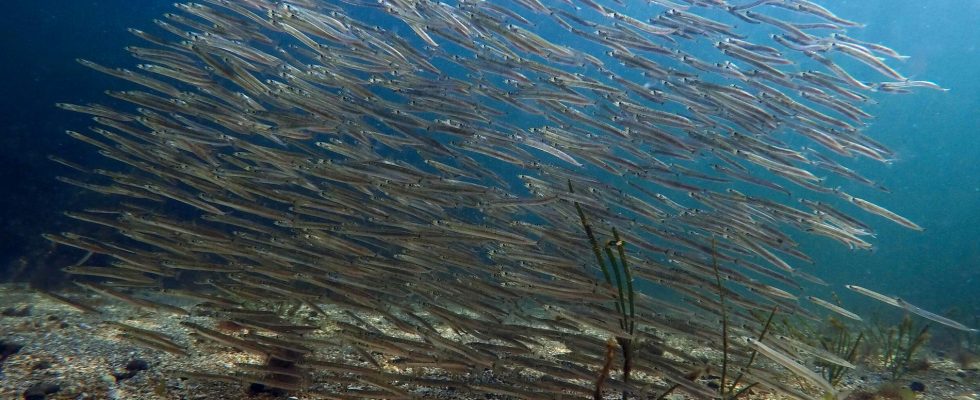The fish in the oceans have shrunk – but at the same time have become more numerous, shows a new global study. This suggests that nature compensates so that the weight of all life is kept stable, the researchers believe.
Both warmer seas and our hunger for large fish are thought to contribute.
That the fish in the oceans have shrunk was hardly surprising, but something both previous studies and fishermen have testified to. But the new study gives a more comprehensive picture, says Anne Bjorkman, researcher in ecology at the University of Gothenburg, who participated in the study.
– Our results show that it is a consistent trend in the world, she says.
Researchers from 17 different universities worldwide have analyzed the trends of over 4,292 species of animals and plants to see how their size has changed since 1960.
Who eats who
When it came to plants and animals, the picture was scattered – some had become larger and others smaller. The trend of shrinking size was most evident among fish. An example is the cloroka, which can grow up to one meter long but has become increasingly smaller. There have also been reports that salmon in areas of the Pacific have shrunk.
– The fact that fish become smaller affects who can eat who and thus the entire ecosystem. But it also affects what we humans can eat and fish and is important for fisheries management, says Bjorkman.
Why the saltwater fish are getting smaller is not yet known for sure. But there is a lot of evidence that it is us humans who are behind it – in different ways -.
Lure for big fish
Both overfishing and global warming probably contribute, say the researchers.
When it comes to fishing, a focus on taking large and meaty trout can give room for smaller species to spread.
The desire for large fish can also affect stocks genetically, in that small-sized fish are allowed to live and spread their genes to a greater extent than large-sized fish.
– It’s not something we examined in the study, but a lot points to it, says Anne Bjorkman.
The fact that the world’s oceans have become warmer as a result of climate change can have an effect, because it is known that organisms grow faster in warm environments but still become smaller in the end when they are fully grown.
Nature compensates
At the same time, another clear trend was visible in the study: the fish had indeed become smaller – but also more. The mackerel is one of the species that thrives.
According to the researchers, the finding supports a theory that the total amount of biomass – the weight of all living organisms – is kept stable by nature itself. This is because the ecosystems compensate so that large organisms that disappear are replaced by more but smaller individuals.
– It was a little surprising and very interesting that that theory seems to hold true on such a large scale, says Bjorkman.
TT: Is it something positive, if nature works like that?
– For us humans, it might be positive, because we don’t lose biomass or nutrients that we can get from the sea. But there are complex connections and for nature it is difficult to say whether it is positive, says Anne Bjorkman.
The study is published in the journal Science.
